The Associate of Science, Bachelor of Science in Early Childhood Education, and Bachelor of Science in Integrated Early Childhood Education (PreK–Grade 3) Leading to Teacher Certification are designed to build teaching and leadership skills that can be applied in school settings. This program is accredited by the Connecticut State Department of Education (CSDE) and also meets national accreditation standards. The Bachelor of Science in Integrated Early Childhood Education (PreK-Grade 3) Leading to Teacher Certification is accredited by the Council for the Accreditation Educator Preparation Providers (CAEP) with Stipulations for initial level programs.
What You Will Learn
The Early Childhood Education programs at Mitchell College prepare future teachers to become agents of change across multiple careers in education. Students enrolled in the Early Childhood Education programs not only engage in rigorous coursework taught by faculty who are experts in the field of early childhood education, but also participate in experiential learning through supervised clinical field experiences in partner schools such as New London, Waterford, and East Lyme, as well as the Children’s Learning Center at Mitchell College, which is located on our campus. Mitchell College offers the following degrees in Early Childhood Education:
A.S. in Early Childhood Studies
This two-year degree prepares students for careers in areas such as Infant/Toddler Educator, Child Referral Person, Family Child Care Provider, or Education Retail Specialist.
B.S. in Early Childhood Education
Mitchell College offers two specializations:
(1) The Integrated Early Childhood Education (Pre-K—Grade 3) Leading to Teacher Certification degree is accredited by the Council for the Accreditation of Educator Preparation Providers (CAEP) and culminates with two supervised clinical field experiences during student’s junior and senior years. This degree prepares students to be certified classroom teachers in either public or private schools.
(2) The Early Childhood Education degree provides one supervised clinical field experience (Pre-K through K) during the junior and senior year. This degree prepares students for careers in areas such as paraprofessionals and teaching assistants in a classroom setting.


The Mitchell Difference
Earning a degree at Mitchell College requires a combination of coursework and experiential learning built around our Abilities Model. This skills-based learning approach includes the following: First-Year Experience, Integrative Career Development, Core curriculum, Major curriculum, and exploratory electives. Every program at Mitchell offers unique opportunities to our broad spectrum of students for their educational, occupational and lifestyle pursuits.
The Early Childhood Education program features:
- Hands-on learning as a way for students to explore, retain and experiment within their field of study:
-
- Lab school at Children’s Learning Center provides students with opportunities to work, complete practicums and conduct research within a vibrant school setting
- Field experience through working and studying in schools (Pre-K, K, or Grades 1, 2 or 3)
-
- Wraparound supports that offer resources and promote community-building within the learning process:
-
- Professional tutoring from retired teachers
- Support for certification testing
- Mentoring program for first-year students
- Professional and faculty advising
-
- Organizations and activities to build community with peers, learn and have fun, such as:
-
- Early Childhood Education Club
- Educators Rising Collegiate Chapter
-
- Practicums offering real-world experience to enhance our students’ education journey through work in local schools
- Service learning that combines learning objectives with community service in ways that can benefit both student growth and the community
- Research that offers students the opportunities to delve deeper into subject areas of interest with faculty guidance
- Minor and/or Microcredential(s) allowing students more compact, narrowly focused courses to develop specific skills in their area of study
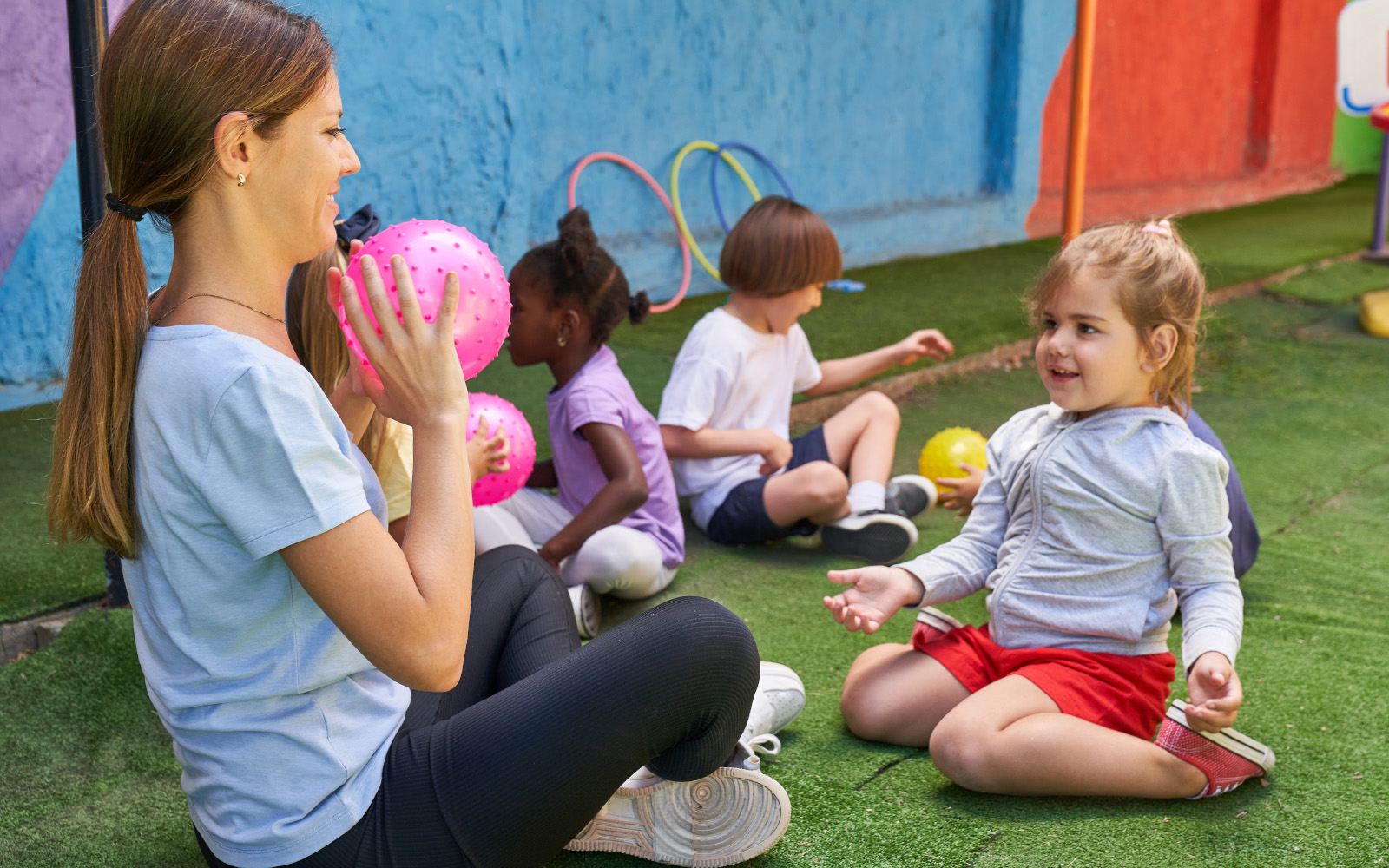
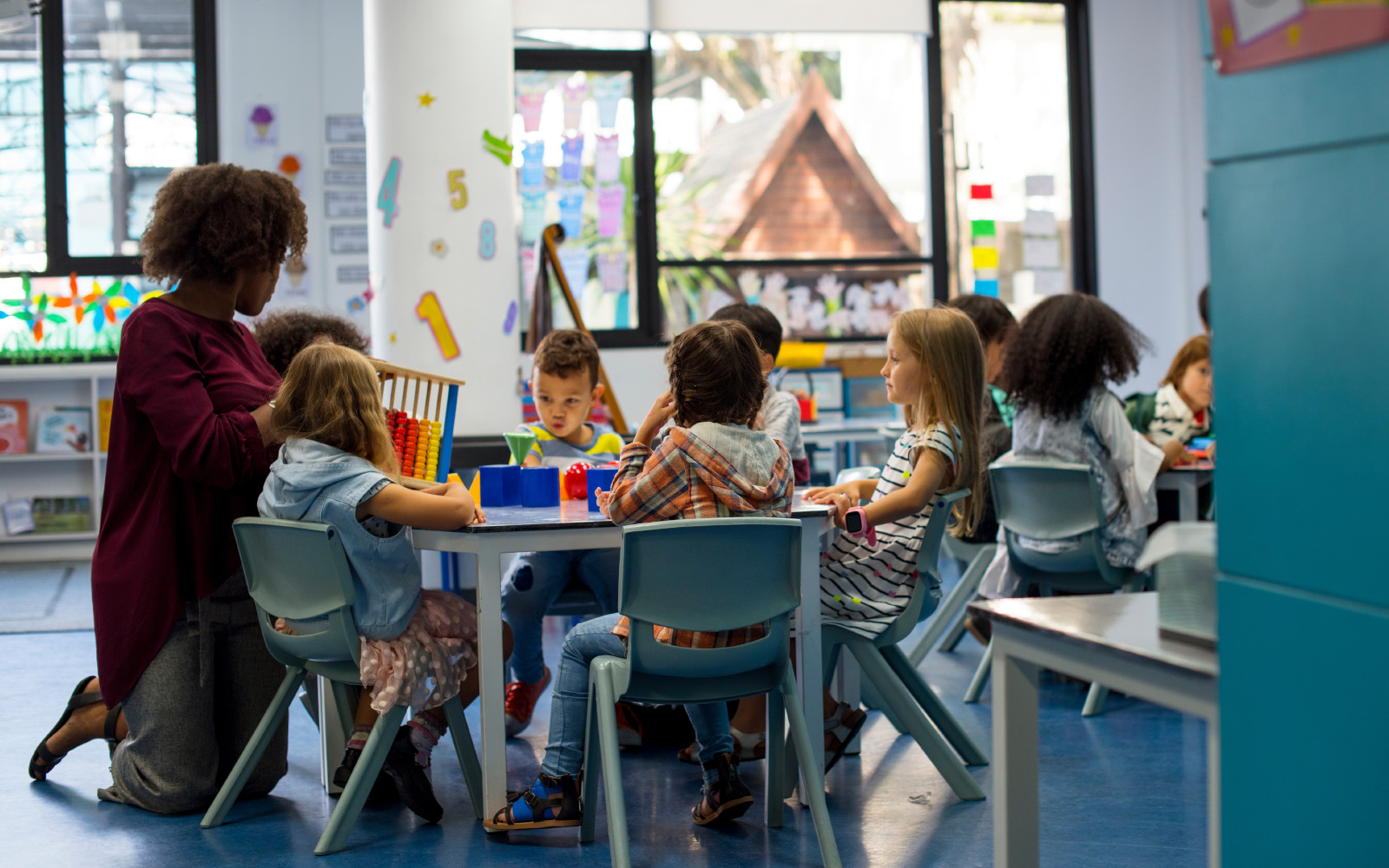
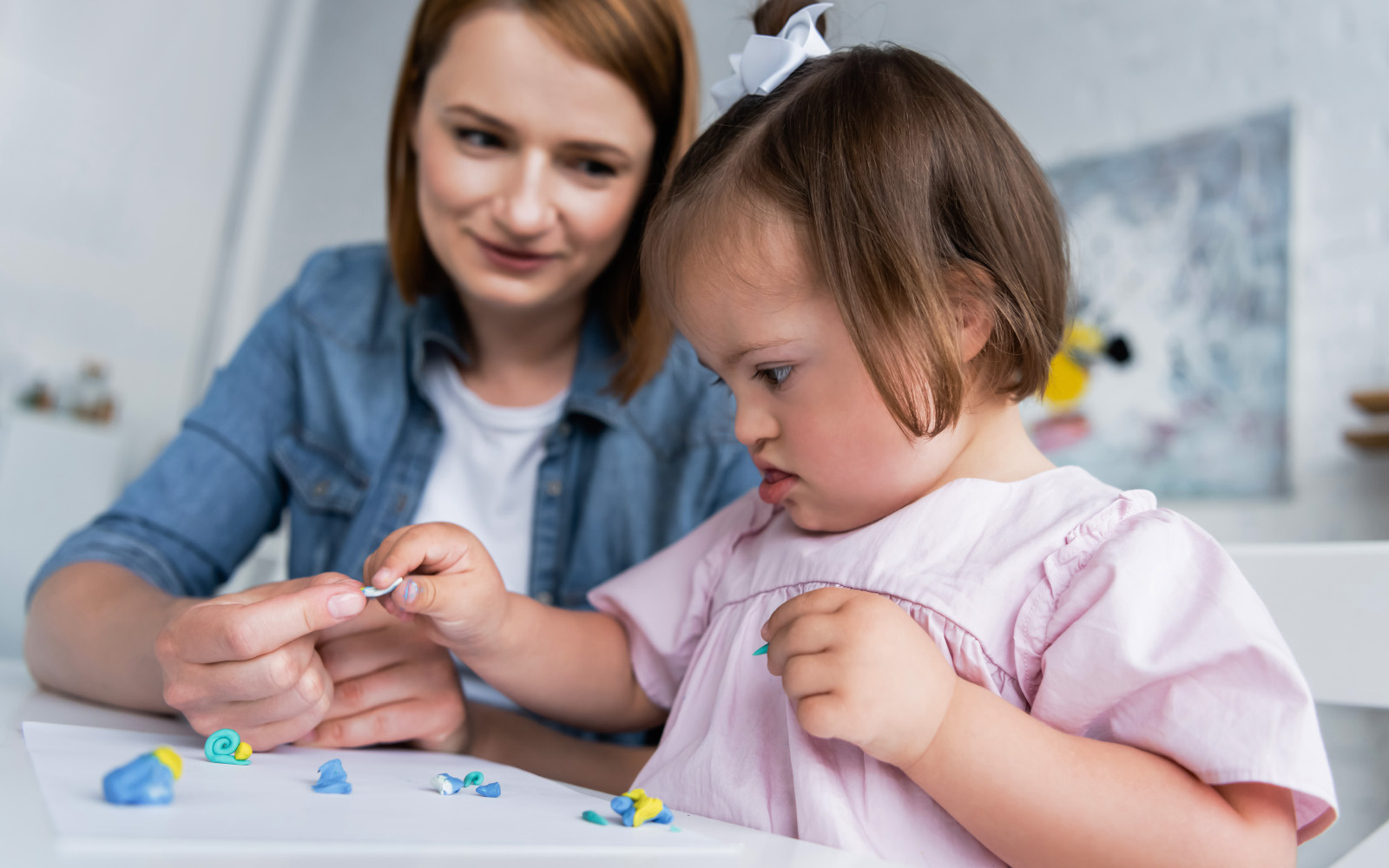
Career Pathways
The Early Childhood Education program prepares students for a wide variety of careers:
- Infant/Toddler Educator
- Early Childhood Educator
- Child Referral Person
- Family Child Care Provider
- Education Retail Specialist
Program Resources
CAEP Accreditation
Measures of Program Impact
Measure 1: Impact on P–12 Learning and Development
Measure 2: Satisfaction of Employers and Stakeholder Involvement
Measures of Program Outcome
Measure 3: Candidate Competency at Completion
Measure 4: Ability of Completers to Be Hired (in positions for which they have prepared)
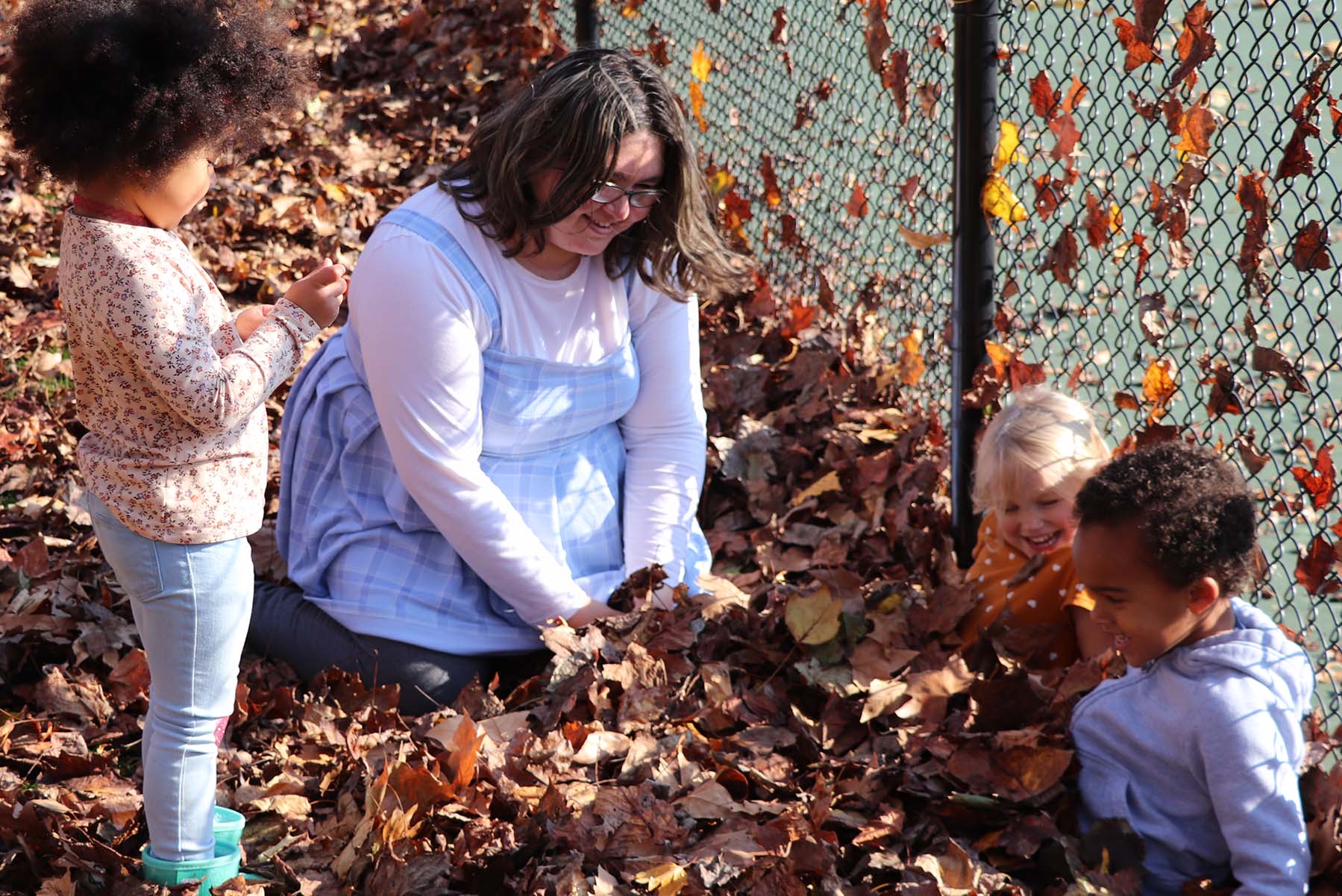
Samantha Oudkerk ’22, an early childhood studies major, was one of six Mitchell College students who did their teaching practicum at the Children’s Learning Center (CLC) at Mitchell College during the fall 2021 semester. She completed her final practicum at The Friendship School in Waterford. Her goal is to become a preschool teacher or teacher assistant. She said Mitchell “is where I realized that I wanted to be a teacher.”
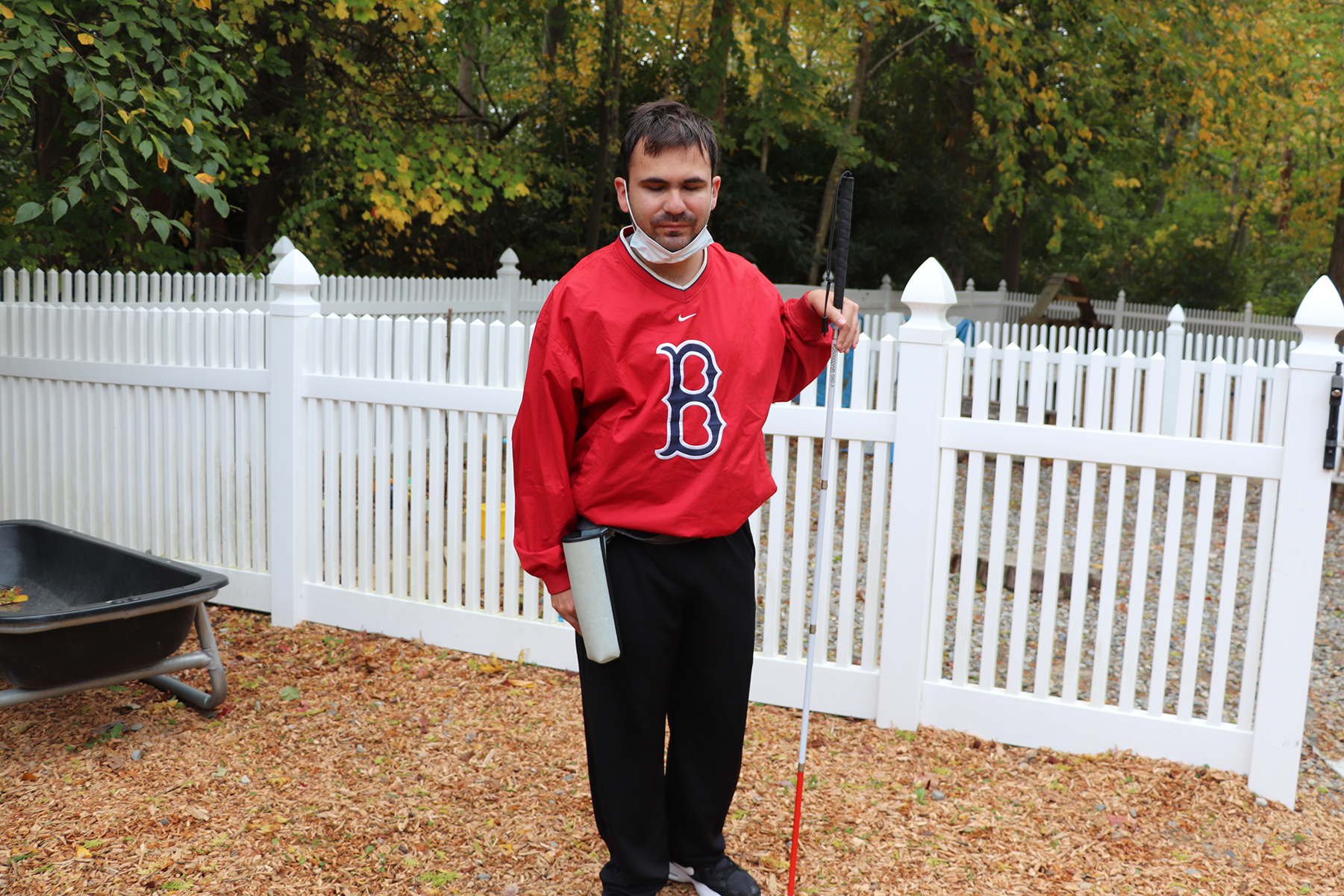
Blind since birth, Brian Martin ’22 had been taught by a few people who were also blind or visually impaired, and recognized their positive impact on him. He began Mitchell College as a communication major with an interest in radio broadcasting, but changed his major. At Mitchell, he discovered that “I would love working with and helping others like myself. Halfway through my time at Mitchell, I changed my major to early childhood studies. I discovered that this is my calling.” He plans to pursue a master’s degree in special education, with the goal of working in a large public school system, perhaps Boston, either in a middle school or high school, possibly with a dual certification as an orientation mobility specialist, teaching blind or visually impaired people.
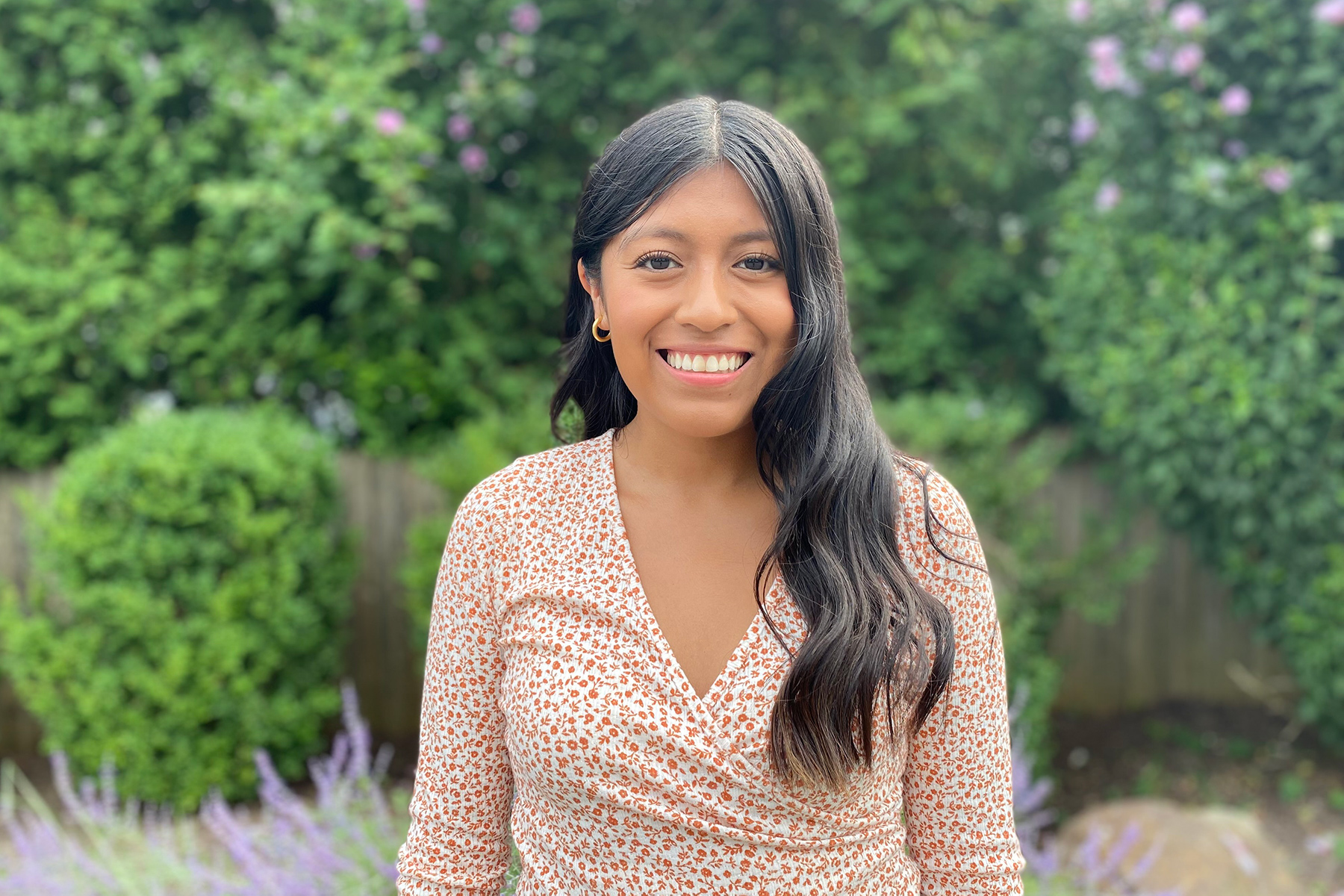
When Priscilla Huyhua ‘20 thinks about Mitchell College, she recognizes all it has done for her future. Since graduating with her bachelor’s degree in both early childhood studies and human development and family studies, she completed an intensive 11-month graduate program at the Neag School of Education at UConn, earned her master’s degree in educational psychology and special education and accepted a position as a special education teacher at Stamford Public Schools. When she looks back on her years at Mitchell, Priscilla understands the role the faculty, staff, her coursework and internships all had in her accomplishments.
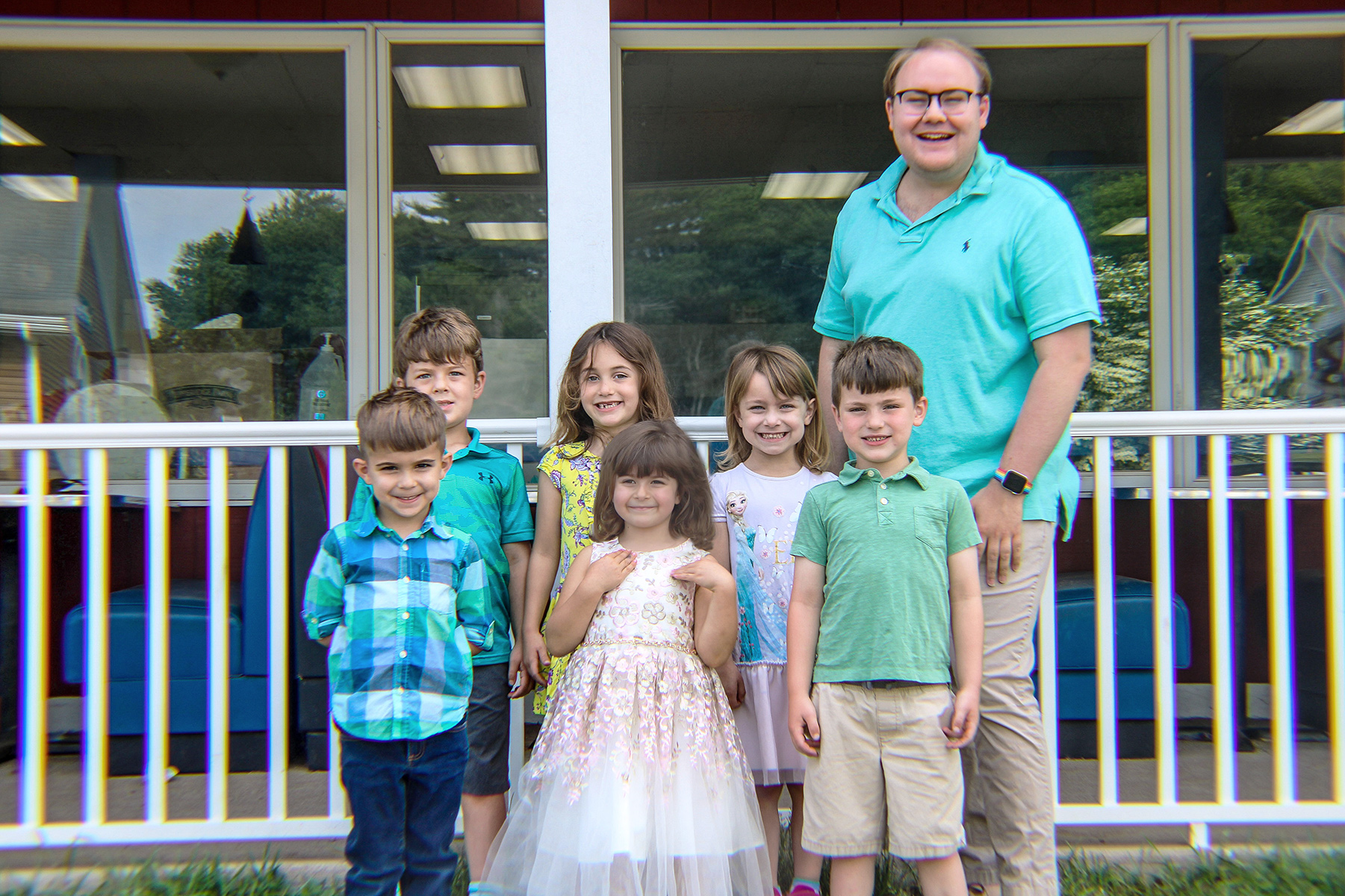
Jason Buehler ’19 describes his years at Mitchell College as “transformative” and “multidimensional,” a wellspring of inspiration for both his work as a teacher and for his life. “I am neurodiverse, and the feeling of coming to a campus that recognized this and had the resources to help me succeed was the biggest reason for me coming to Mitchell.” After graduating he started teaching first grade at The Gordon School in East Providence, Rhode Island, and plans to pursue a master’s degree in curriculum and instruction with a focus on reading and language arts. Jason has found that he often draws on lessons learned from Dr. Nancy Parent’s Cross-Cultural Development course and uses the Mitchell Abilities every day, such as communication, critical thinking, technology, ethics, social interaction, and diversity and global perspectives.
Sample Coursework: Early Childhood Studies A.S. (2-Year Overview)
-View the College Catalog for full descriptions of these courses.
| Year 1 | |||
| Fall Semester | Cr. | Spring Semester | Cr. |
| CW101 – Intro to College Writing | 3 | CW102 – College Writing/Research | 3 |
| FC101 – First-Year Seminar | 3 | FC102 – First Year Seminar | 3 |
| FC105 – New London Then and Now | 2 | Gen Ed Requirement (Theme area humanities) | 3 |
| HD108 – Intro to Human Development | 3 | PY105 – General Psychology | 3 |
| ED110 – Intro to Early Childhood Education | 3 | Math Elective | 3 |
| Fall Credits: | 14 | Spring Credits: | 15 |
| Total First Year Credits | 29 | ||
| Year 2 | |||
| Fall Semester | Cr. | Spring Semester | Cr. |
| ED206 – Integrated Mathematics in Education | 3 | ED222 – Methods & Techniques for Multilingual Learners | 3 |
| EL212 – Literature for the Young Child | 3 | Gen Ed Requirement (Theme area Social Sci) | 3 |
| SCXXX – Lab Science (Natural Science) | 4 | ED276 – Contemporary Issues in Education | 3 |
| ED261 – Special Education I: Working with Neurodiverse Students | 3 | HI106 – | 3 |
| ED274 – Literacy Instruction I: Foundations of Literacy | 3 | Gen Ed Requirement (Fine Arts Elective) | 3 |
| Fall Credits: | 16 | Spring Credits: | 15 |
| Total Second Year Credits | 31 | ||
| Fall Credits: | 30 | Spring Credits: | 30 |
| Total Year Credits | 60 | ||
| Total Credits to Graduate: | 60 | ||
Sample Coursework: B.S. Early Childhood Education (4-Year Overview)
View the College Catalog for full descriptions of these courses.
| Year 1 | |||
| Fall Semester | Cr. | Spring Semester | Cr. |
| CW101 – Intro to College Writing | 3 | CW102 – College Writing/Research | 3 |
| FC101 – First-Year Seminar | 3 | FC102 – First-Year Seminar | 3 |
| FC105 – New London Then and Now | 2 | Exploratory Elective | 3 |
| HD108 – Intro to Human Development | 3 | PY105 General Psychology | 3 |
| Gen Ed Requirement (Fine Arts Elective) | 3 | Math Elective | 3 |
| Fall Credits: | 14 | Spring Credits: | 15 |
| Total First Year Credits | 29 | ||
| Year 2 | |||
| Fall Semester | Cr. | Spring Semester | Cr. |
| ED110 – Intro to Early Childhood Education | 3 | HD110 – Race, Ethnicity, and Culture | 3 |
| HI105 – US History | 3 | PY215 – Educational Psychology | 3 |
| Lab Science (Natural Science) | 4 | Gen Ed Requirement (Theme Area Humanities) | 3 |
| Gen Ed Requirement (Theme Area Humanities) | 3 | BS Elective | 3 |
| Gen Ed Requirement (Theme Area Social Science) | 3 | Exploratory Elective | 3 |
| Fall Credits: | 16 | Spring Credits: | 15 |
| Total Second Year Credits | 31 | ||
| Year 3 | |||
| Fall Semester | Cr. | Spring Semester | Cr. |
| BS Elective | 3 | ED222 – Methods and Techniques for Multilingual Learners | 3 |
| ED261 – Special Education I: Working with Neurodiverse Students | 3 | BS Elective | 3 |
| ED274 – Literacy Instruction I: Foundations of Literacy | 3 | ED321 – Literacy Instruction II: Interventions | 3 |
| ED275 – Interdisciplinary Learning with Field Experience | 4 | ED380 – Special Education II: Planning and Implementing IEPs with Field Experience | 4 |
| BS Elective | 3 | ED276 – Contemporary Issues in Education | 3 |
| Fall Credits: | 16 | Spring Credits: | 16 |
| Total Third Year Credits | 32 | ||
| Year 4 | |||
| Fall Semester | Cr. | Spring Semester | Cr. |
| ED206 – Integrated Math Instruction | 3 | ED435 – Observation and Student Teaching | 6 |
| ED311 – Play in Early Childhood: Theory and Research | 3 | ED332 – Research Methods in Education | 3 |
| ED325 – Literacy Instruction III: Interventions and Assessments with Field Experience | 4 | ED432 – Student Teaching Seminar | 3 |
| ED340 – Social Emotional Development/Classroom Management | 3 | ||
| ED415 – Special Education III: Dyslexia, Interventions, & Accessibility through Technology | 3 | ||
| Fall Credits: | 16 | Spring Credits: | 12 |
| Total Fourth Year Credits | 28 | ||
| Total Credits to Graduate: | 120 | ||
Ready for the Next Step?
REQUEST MORE INFORMATION
